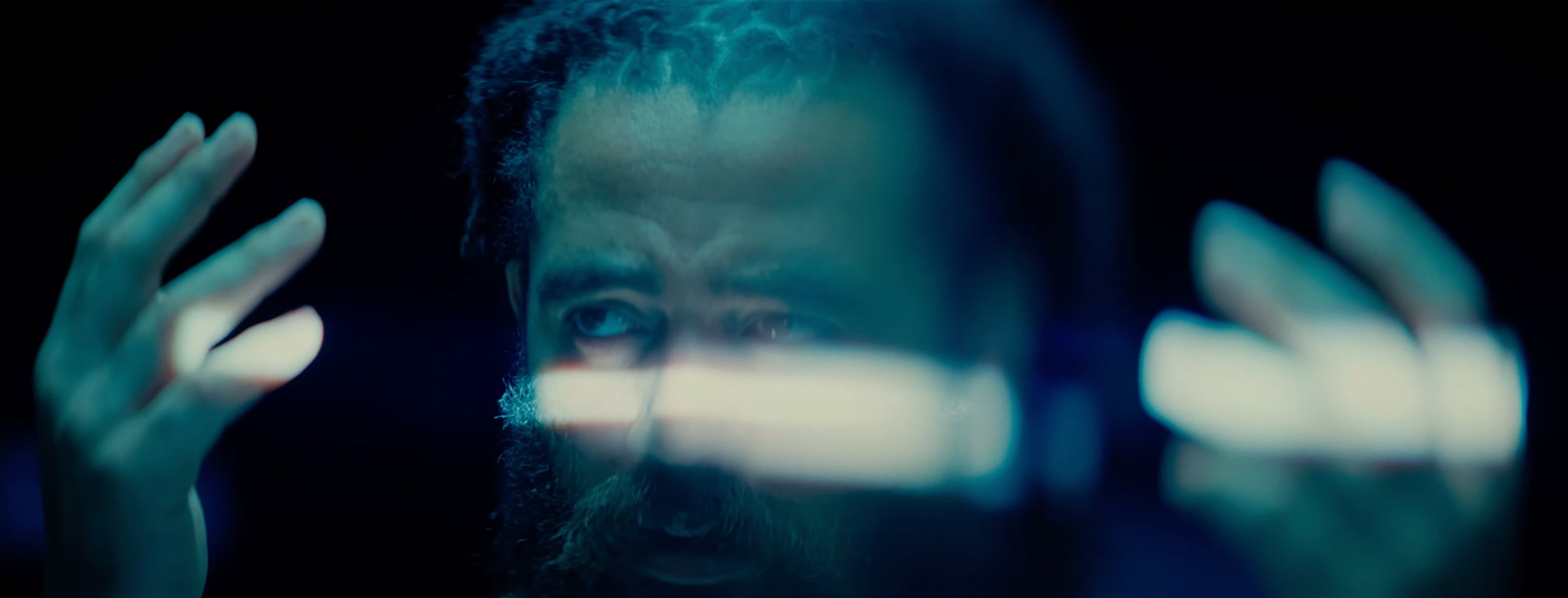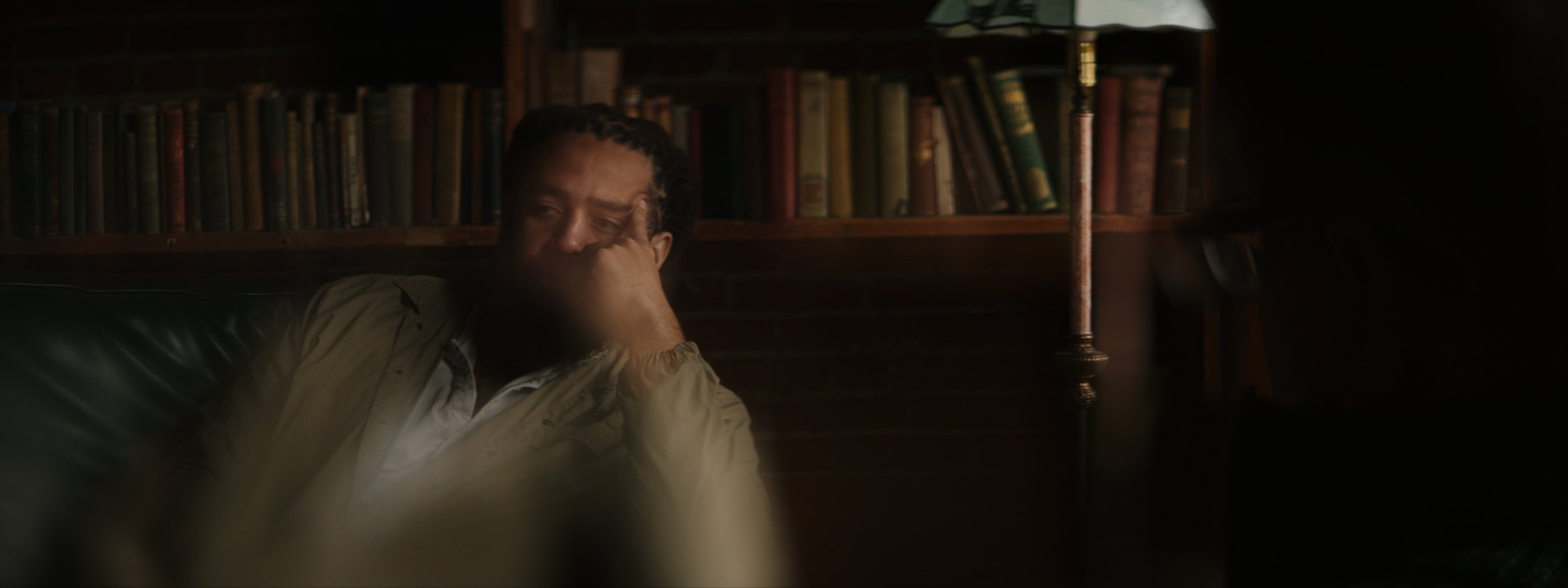A Conversation with Jared Odrick

Jared Odrick is a former professional football player. After 7 seasons in the NFL, Odrick has spent the last 5 years producing a film about Chronic Traumatic Encephalopathy (CTE), a brain condition believed to be linked to repeated head trauma from football. Exploring themes of identity and agency, the 8-part docuseries “Am I Crazy?” chronicles Odrick’s deeply personal journey to investigate the real risks of brain disease and discover what that means for football in American society.
Jack Muraika: Could you talk a bit about what led you to create this documentary?
Jared Odrick: Yeah, a part of it was a series of hard conversations with family and friends. It wasn't like I set out to have conversations with people about football. When I got cut from the [Jacksonville] Jaguars…I knew I wanted a new situation. I didn't know if that was in football or outside of football. [Being cut] turned my relationship with football sour in general…I had to start considering what football had to offer for me.
So then I kept continuing on my search…It almost felt like I was measuring the deals that were coming in from other teams against narratives of former players. Like, what seems more inspiring: these narratives of former players or taking another deal? What I found was a lot of articles and a lot of narratives about CTE—and just this kind of general malaise about the former athlete, you know, like a general decline, or decay, or depression of the former hero.
And I started seeing that over and over again and almost felt like I found an archetype. It felt like I found something that's a common trope within society that, you know, all of our heroes at some point, especially heroes that we deem in the sports world, or in the physical world, have to then decline. There was this built in expectation of decline, not just physically, but also just socially and financially.
So then I looked into CTE further, because I was writing a script. I eventually moved to Brooklyn—where all creatives, of course, go—and there was a local writer and director that I had met, and we were reading the script together. And the logline was, the day before the biggest game of his career, an NFL football player realizes his true dream will never come true. His true dream where he wanted to be this opera singer, we had to make it something that was like, embarrassing within the locker room.
I wanted this character to have aspects of reality, and I thought CTE, what's the CTE thing? So, me and the director thought maybe we should reach out to these doctors that have been most vocal about it. So we contacted them. And as soon as we went there, Bob Stern agreed for us to come to Boston University to interview him and bring a camera. And when I did that, he really didn't feel like he was telling me anything scientific. It just felt like he was telling me stories. I thought, That's kind of weird, isn't it? It just felt like he was telling me stories. He didn't seem like he was even asking questions about me like, what symptoms I had or what I was feeling. He was just kind of telling me stories about it.
And so I'm like, I think I want to do this. And I think partially that was because it didn't feel like what I expected. But then also, because it was live, it wasn't this script that I was writing in an apartment in Brooklyn, I was getting a crew together. We were mapping out hotels to stay at that were close to the university. I was then writing all these questions, reading medical literature, and I was reading their statements to Congress…I was trying to figure out what would be good questions to ask this person if I only have two hours with them. You know, what can I get across to other people, and it felt interactive. All of a sudden, I was involved in something way less abstract, but it was real. It was tangible. And I'm like, I want to make a documentary about this. And that's what clicked. And I was like, I want to keep going down this rabbit hole. Because it seems like there might be one here.
JM : Did you feel an obligation to express your story and the story of other former athletes because the reality of athletes becomes sanitized in the media?
JO: Yeah, sanitize is a really good word. Because, a part of me, leaving the game, I just really felt that in all the interviews I was doing I just kept getting asked the same questions over and over again and I felt myself giving the same responses. I eventually tried to spice them up, but I heard myself and I didn’t like hearing myself the way I was responding because I was so tired of the same questions and it does feel sanitized. I felt myself giving the response they were expecting. And it's almost like these sports journalists’ questions gave you the words to say; they just wanted you to repeat them in your voice. And I don't feel like a real person. I don't feel like they're asking me a question that allows me to impart a perspective. I just have to then fulfill theirs. And that felt weird. I was just like, Why aren’t more guys tired of this? Well, they're not tired because they're making lots of money. They're in the high end of society, or in terms of people regarding them in a certain way. So, why would you give up the repetitive scenario of punching the clock as an athlete with a great body and a great social situation making a lot of money?
I wanted to help people from thinking that they were going f***ing crazy because they were going through changes at the end of their career—experiencing different psychological concepts that felt like they were rushing into your life that you never really had to deal with before. Also, financial concepts and all different types of things came rushing in when you no longer had this very, very structured surrounding and schedule that was laid out for you 7 to 8 months a year. And so, a lot of your assumptions end up eroding and you have to build new patterns. I think that's hard for people, and it was hard for me. I thought maybe there's something else that can explain why I felt so out of sorts.
The other thing was that there wasn't anybody within pro sports or at least pro football that I felt shared my interests. When I was coming home my last year from practice every day in Jacksonville, I was doing and watching content and engaging things that were so far away and so far removed from football. I was dating a painter who was an artist who was studying for an MFA on Jax Beach. I was getting decaf coffee just because this coffee spot had really good coffee. Also, there was a totally different type of artistic language that was being spoken in these places. And I was attracted to that. And I was attracted to writing. I was attracted to expression with words, and I was attracted to visuals. I was attracted to a different type of visual culture that didn't exist in football.
I wanted there to be more space for the athlete to be a more full, rounded person, because it always felt like football players were super restricted. It felt even more restricted than basketball as you see the runway on the way to their games. Now I'm sitting here thinking well that's just pop culture bull***, but at least it felt expressive. In football, players just seemed more confined because of how large the team is. It's like the bigger the team, the more conformity you need. So, I started witnessing that, and I just want options for Football players—more than what they have now. I'm not against football, I'm not against conformity. It's necessary to win football games. I totally understand that, but I just wish there was somebody else having more complex conversations—or at least expression—within the realm of football than what was there. I didn't feel like it was there, and I wanted to do that because I was looked at like an alien anytime I tried to bring up anything outside the bounds of what that culture presents.




JM: You mentioned that you shot the documentary in exclusively natural light and I was curious, if given some of the themes in the film, if that was a philosophical choice as much as a stylistic one.
JO: Yeah, we tried to use as much natural light as possible and just lights that were in the Airbnbs and the different spaces that we're in because I had done so many interviews in my career as the subject. There was all this faux lighting, and you just know that there's like eight people behind the camera and it pressures the person to say the thing that the people in the room are expecting you to say. And that's what those lights do. And I didn't want that. You know, because the medium is always the message. I wanted something authentic, and that’s where my [director of photography] really worked with me. There were one or two interviews where we really had to work the lighting and, you know, editing and doing color and sound afterward, but that’s what I wanted. I didn't want anybody else in the room that didn't have to be in the room. It's just I felt so much pressure in the interviews before as the subject where I was pressured into saying what was expected as opposed to what I really felt. And if I had less show-business in the room then maybe I would have said something different. And that's why I wanted to follow through with that. So it's philosophical and an aesthetic of choice. Yeah, but I think you know a lot of times if you're true to your philosophy then you get a more honest aesthetic.
JM: The filming [for this documentary] took a very long time. Did this give you closure from football?
A part of the reason I wanted to do this was because I thought [the documentary] was going to happen in a year, not five years. So when I did it, I'm like, you know what? I'm not doing one of these stale repetitive sign offs from the NFL. I saw so many guys retire and sign off from the NFL and put out a public statement… on their Twitter and Instagram, and then the NFL Network or ESPN retweets it. They put out the same thing they're saying, “It's not about the money. It's not about the wins and losses. It's not about the fame, it's about the relationships you build in the locker room” you know. I had some of the most awesome experiences inside the locker room, but I just didn't want to repeat that. I didn't want to repeat the same thing, and it just felt so stale and repetitive like it's a rite of passage. Of the way that you have to look at the game in order to exit with honor, and I'm like, I'm not that. And so, I wanted this piece to be like my big sign off, and I thought I was going to do it within a year. I signed up for something way bigger and way more involved, so that's kind of part of the reason why I did it.
All 8 episodes of ‘Am I Crazy?’ are streaming on Youtube


